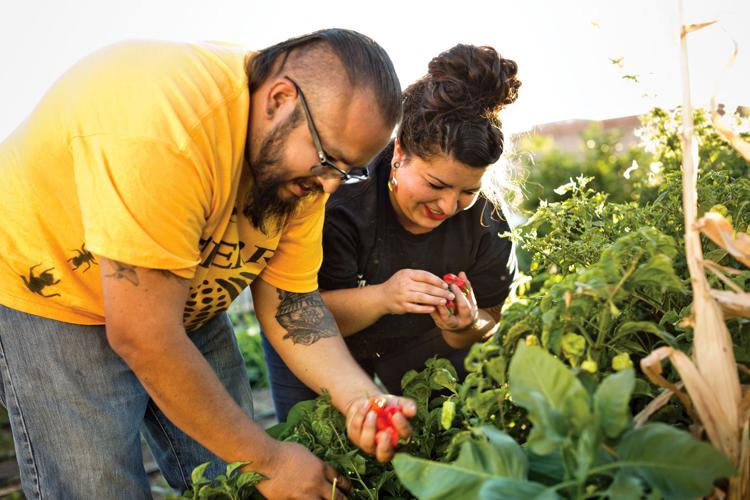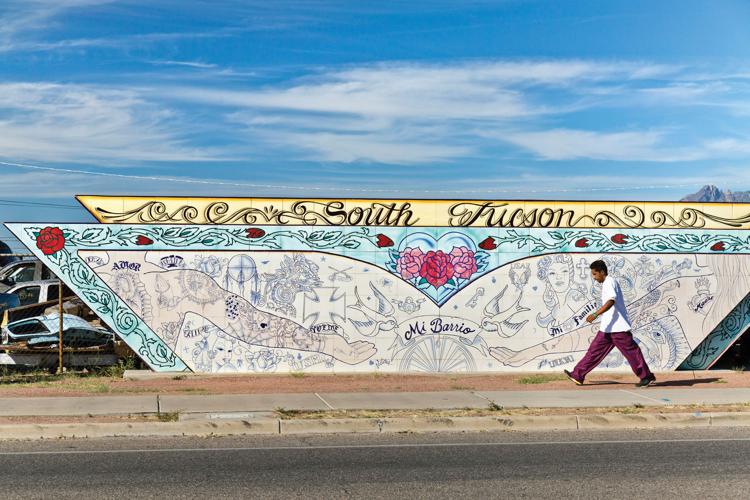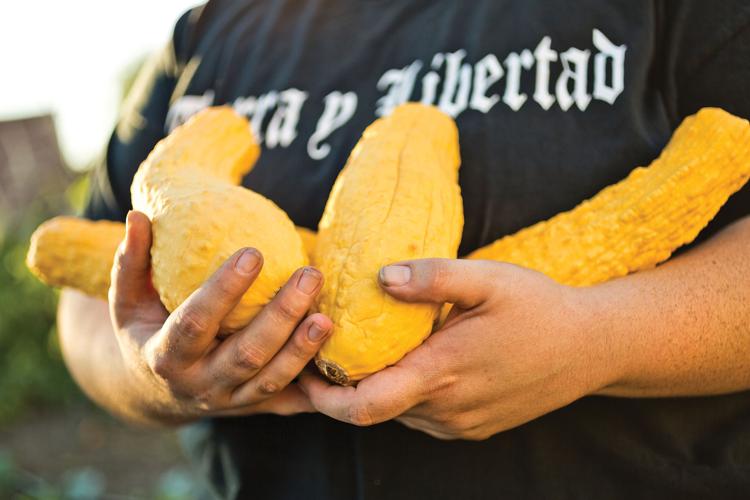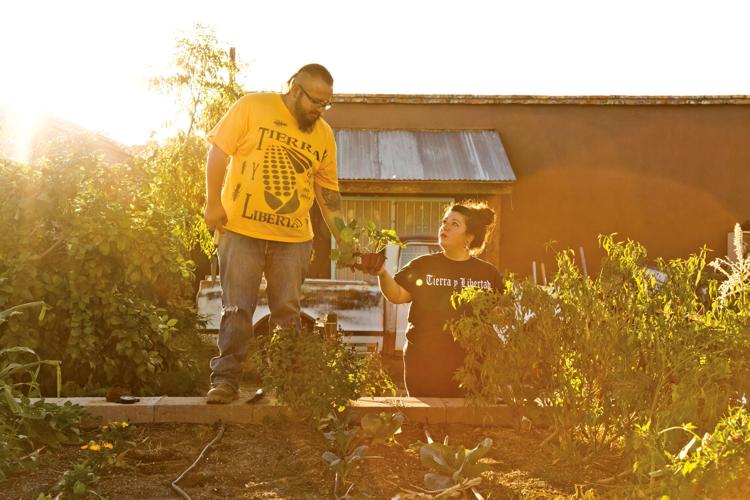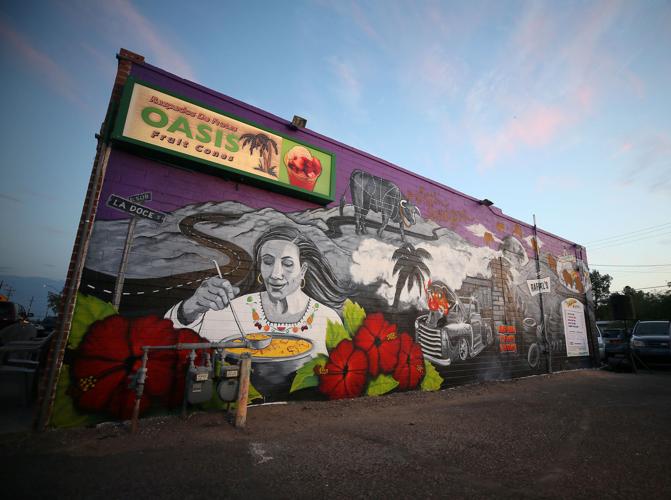Francisca Cruz was tentative as Nelda Ruiz set up the camera in Cruz’s dining room. But the hesitation evaporated the moment Ruiz began the interview.
What foods do you eat? Who prepares the food in your home? Do you have a garden? What do you grow? Do you eat what you grow? Do you buy organic foods? What are the issues in your neighborhood? If you were mayor, what would be the first thing you would change in your barrio?
Ruiz is part of a small south-side community-organizing group documenting the issues of food sustainability, health and nutrition, education, public safety and community participation in the neighborhoods that stretch along South 12th Avenue. Group members have organized workshops, demonstration gardens and rallies, lobbied local government, and with residents like Cruz, are collecting information to discern the challenges families face with the goals of empowering residents to bring positive changes.
The Tierra Y Libertad Organization wants to bring about change one family and home, one street and one barrio, at a time.
“There are so many elements to our work,” said Ruiz, a graduate of Salpointe Catholic High School who grew up in Ambos Nogales, on both sides of the border. Along with Claudio Rodriguez, her partner who was born in Nogales, Sonora, and grew up on this side of the line, she has been organizing, educating, collaborating and sharing with barrio families along the South 12th corridor known as La Doce.
Among the elements of the group’s work is educating those La Doce families who are living and working here without the U.S. government’s permission about their civil and human rights.
The multi-faceted group, whose name in English means Land and Liberty, launched its work in 2001. The small cadre, mainly young south-side residents, understood the disparities that existed then between their neighborhoods and others in Tucson. Streets and schools were not the same. Public services and safety were different. There were fewer healthy food alternatives and there were more liquor stores.
Many of those disparities still exist, which makes organizing a daunting task for Ruiz and Rodriguez, who call themselves “barrio campesinos.”
“Time has been a challenge because we are a grassroots organization so we all have our day jobs and we organize and do our deber to the community after hours and weekends,” Rodriguez wrote in an email. “But we always find time to make things happen.”
In recent projects, Tierra and Trees for Tucson planted 17 desert native shade trees at C.E. Rose Elementary School, on South 12th Avenue, with first- and second-grade students. Tierra members also planted 15 fruit trees in South Tucson homes and organized a subsequent workshop on caring for the trees. And Tierra planted 25 desert native shade trees, mesquites and palo verdes, at St. John the Evangelist Catholic Church at West Ajo Way and South 12th Avenue.
Finding financial support among and for a low-income community is another persistent challenge, wrote Rodriguez, who works as the school garden coordinator of the Community Food Bank of Southern Arizona. “But through partners we have been able to secure grants and opportunity for our south-side community.”
Currently Tierra is collaborating with several partners including the Southwest Folklife Alliance, a nonprofit organization of the University of Arizona’s College of Social and Behavioral Sciences; the Community Food Bank of Southern Arizona; and the city of Tucson.
Recently Tierra worked with two local Chicana artists on a unique mural project. The Talking Mural created by Alex Jimenez and Johanna Martinez is an interactive mural at Raspados Oasis on South 12th Avenue. The mural recognizes some of the iconic businesses along La Doce and allows viewers to hear brief histories of the businesses.
At their South Tucson home on South Fifth Avenue, Ruiz, who is a medical insurance counselor, and Rodriguez maintain a barrio sustainability demonstration garden to show residents what’s possible in home gardening and rain water harvesting. There they hold how-to workshops and community gatherings.
There is an urgency to their mission but Ruiz and Rodriguez understand that organizing is a slow grind that requires patience and discipline — and love for the community.
Rodriguez wrote: “Like anyone, we get tired but we have a responsibility to our people and if we don’t do it who will?”


